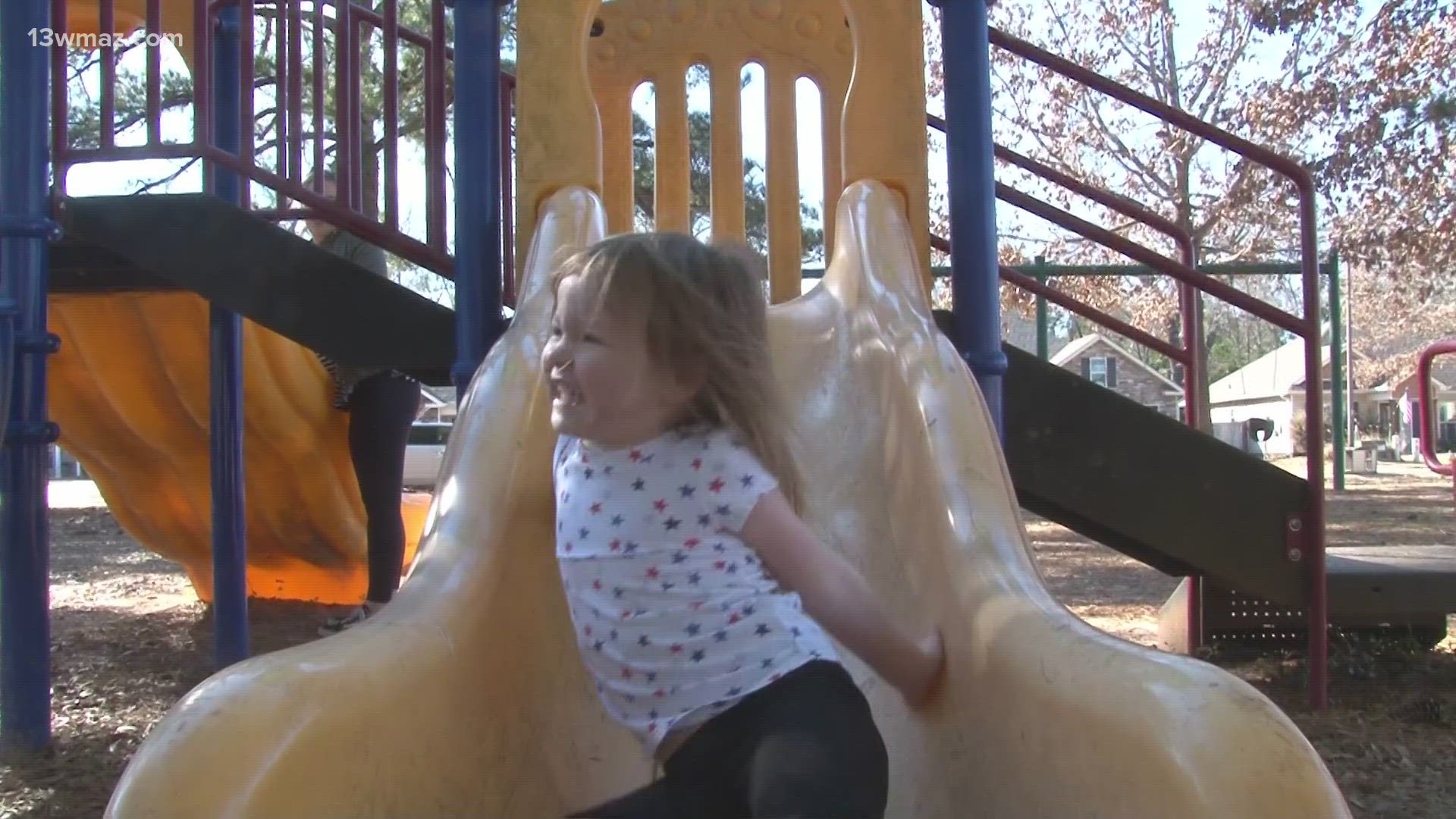HOUSTON COUNTY, Georgia — Daycare costs across the country are skyrocketing, and it is causing many families to answer tough questions and come up with some creative solutions.
A new report from the Economic Policy Institute shows Georgia joins nearly three dozen other states where childcare is now more expensive than some college tuitions. According to their numbers, parents in the peach state spend an average of $8,530 dollars a year on childcare per child. That comes out to more than $700 per month. The Economic Policy Institute says it now costs $1,324 a year more for daycare in Georgia than the average in-state tuition for a four-year public college.
"So you're really just working to bring food home and go to work," says Houston County mom Charis Stover. When she and her ex-husband looked for daycare for their son and twin daughters, it was going to cost them $450 a week.
"It's pay groceries or pay daycare," she says. "I know a lot of people who quit their jobs to stay home, especially if they're going to have more."
Stover's family took a different approach, so they could both keep their jobs and avoid childcare costs. She says it is not easy, though.
"I get up at 4:30 to be out the door by 5:30," she says.
After working eight hours, she trades off with her ex-husband so he can then begin his work day.
"He's not supposed to get off until 11:30," says Stover. "We feel very stretched thin, but we make it work."
She says having to pay for daycare would cost them in other ways too.
"We would definitely have to miss out on a lot of opportunities. Vacations probably wouldn't happen."
Georgia does offer help with childcare costs for low-income families through the Childcare and Parent Services, or CAPS, Program. There are limits, though. For example, a family of three would need a household income below $40,000 for initial eligibility.
"If you're just over that, then you can't get any help," says Stover.
A Bank of America Institute report says the rising costs are mostly affecting middle- and upper-income with many dipping into their savings at a faster rate.

